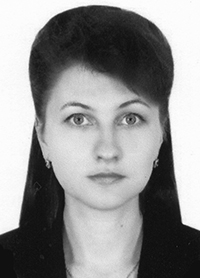Psychological and pedagogical support service to martial arts coaches
Keywords:
coaching activity, martial arts, psychological factors, goal-setting, aggression.Abstract
Objective of the study was to assess the specific nature of coaching activities in martial arts as a basis for the development of the psychological and pedagogical support program.
Methods and structure of the study. The study was conducted in two stages: 1) definition of the cognitive and emotional components of coaching activities; 2) development of the psychological and pedagogical support program for martial arts coaches. The methods applied during the study were as follows: the Buss-Perry Aggression Questionnaire; the Viability Test (adapted by D.A. Leontiev and E.I. Rasskazova); the C. Riff Psychological Well-being Rating Scale (adapted by T.D. Shevelenkova and P.P. Fesenko). The mathematical and statistical data processing was carried out using the non-parametric Mann-Whitney and Fisher tests.
The specific nature of coaching activities was assessed based on the results of the questionnaire survey of 50 martial arts coaches in kickboxing, hand-to-hand combat, MMA, etc. (21 subjects, hereinafter - Group 1) and coaches in individual sports such as swimming, ski sports, tennis, track and field athletics (29 subjects, hereinafter - Group 2). The survey was conducted in the sports institutions of Surgut, Nizhnevartovsk, Langepas both online and during immediate interaction.
Results and Conclusion. Based on the data obtained, the activities of martial arts coaches will be characterized by such aspects as communication problems, a high level of autonomy; the ability to influence others. The support service to martial arts coaches should be focused on building communication processes with athletes and colleagues, finding different ways to resolve conflict situations .
References
Gomelskaya T.V. Structure and content of psychological-pedagogical relationships in the system «coach-athlete». PhD diss. abstract. Moscow: RSRIPCS publ., 2005. 23 p.
Kargapoltsev A.V. Training combat athletes for competitions taking into account their level of anxiety. PhD diss. Shadrinsk: SPI publ., 2018. 152 p.
Leontiev D.A., Novatova E.I. Viability Test. Moscow: Smysl publ., 2006. 63 p.
Neverkovich S.D., Koshman M.G. Theoretical model of sports culture of sports teacher. Mir psikhologii. 2017. No. 1 (91). pp. 146-157.
Ulyaeva L.G., Melnik E.V. et al. Psychological and pedagogical support of sports activities in the context of personal self-fulfillment. Moscow, 2014. 236 p.
Khokhlova N.I., Rodermel T.A. Psychological and pedagogical components of training of karatekas. Teoriya i praktika fizicheskoy kultury. 2020. 3. pp. 99-101.
Shevelenkova T.D. Fesenko T.P. Psychological well-being of the individual. Psikhologicheskaya diagnostika. 2005. No. 3. pp. 95-121.

Additional Files
Published
Versions
- 03-01-2022 (4)
- 03-01-2022 (3)
- 20-12-2021 (2)
- 01-11-2021 (1)

